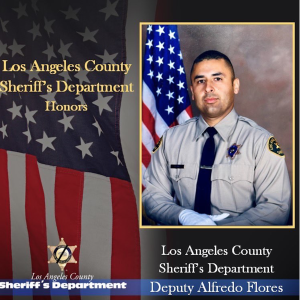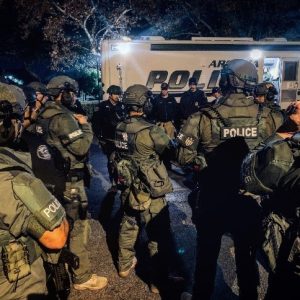 View Winners →
View Winners → Transparency and the Police: New State Law allows More Public Access to Police Personnel Records
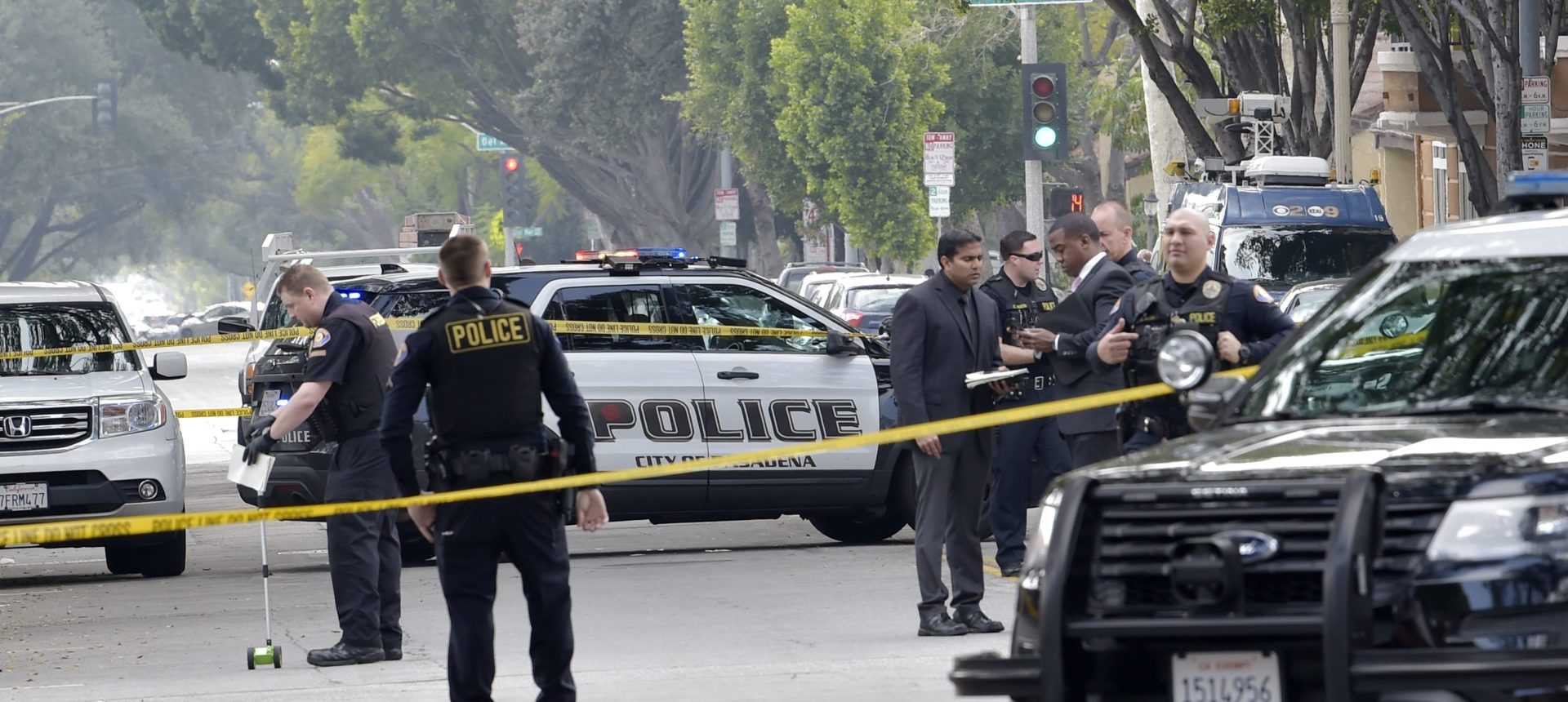
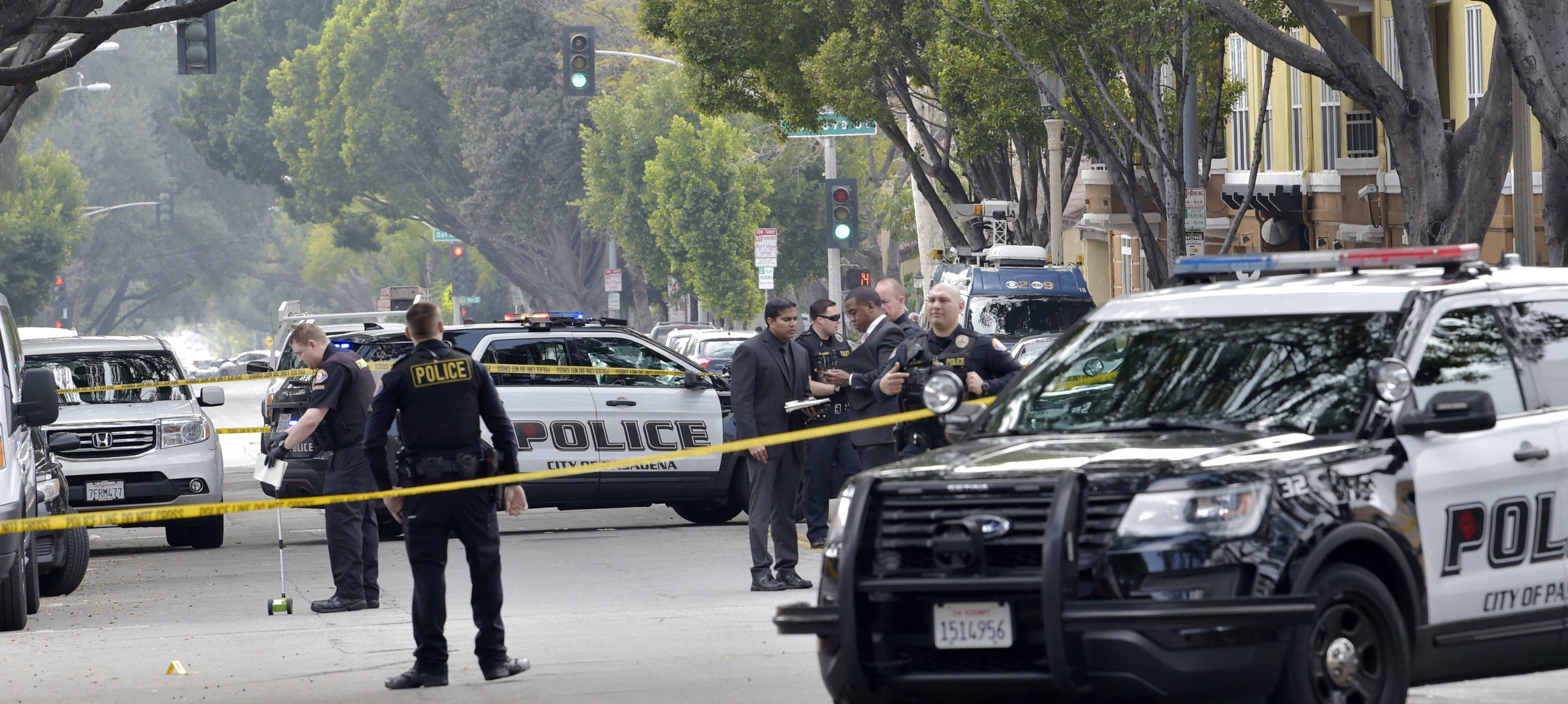
Our society depend on peace officers’ faithful exercise of authority. – Photo by Terry Miller / Beacon Media News
By Terry Miller
In California, accounts of police personnel activities have been closely fortified— that is, until recently. Reaction, in general, is positive but some police unions and associations are opposed to disclosing personal records of their rank and file members.
The new state law- SB 1421 – is said to give the California news media and public access to police personnel records under certain circumstances, including when there is a “sustained finding” of sexual assault or dishonesty committed by a police officer.
Local police have been grappling with how to respond to these requests due to an ongoing argument made by police unions about whether Senate Bill 1421 applies to records from before the law took effect Jan. 1. The legislation opens to the public certain misconduct and use-of-force records.
Additionally, AB 748 requires agencies, effective July 1, 2019, to produce video and audio recordings of “critical incidents,” defined as an incident involving the discharge of a firearm at a person by a peace officer or custodial officer, or an incident in which the use of force by a peace officer or custodial officer against a person resulted in death or great bodily injury, in response to CPRA requests. The City of Pasadena is already ahead of the curve on this one and has released body-cam footage of critical incidents in recent years.
Of the 1,147 people who were killed by police in 2017 – 92 percent were killed by police shootings. Tasers, physical force, and police vehicles accounted for most other deaths, according to a report posted on policeviolencereport.org.
In many countries, police routinely disarm people who have knives without shooting them. For example, police in the United Kingdom encounter knife attacks at a similar rate as U.S. police but handle these situations without using firearms in all but four cases this year – each an extreme case where firearms were used to stop a terrorist attack.
Consistent with international law, police in the UK are prohibited from using firearms except where strictly necessary after considering non-violent and less lethal options. The new state law, Senate Bill 1421, broke down “a wall of secrecy built up since the 1970s that blocked public access to the most serious police misconduct and deadly use-of-force information.”
Locally, we’ve been fortunate enough to have relatively few major incidents that would warrant the publicity that has driven some communities apart and led to distrust of their police.
Senate Bill 1421 and Assembly Bill 748 garnered mixed reactions from area police departments. However, all seem to say the same thing: they respect the laws in place and at the same time respect transparency.
Monrovia Chief of Police, Alan Sanvictores, spoke with Beacon Media on Tuesday morning and underscored his department’s commitment to transparency and the effective community policing program that was initiated by former Chief of Police Joe Santoro in the late 1980s.
Sanvictores says his officers are pro-active and have not seen any significant increase in public information requests as a result of the new law(s).
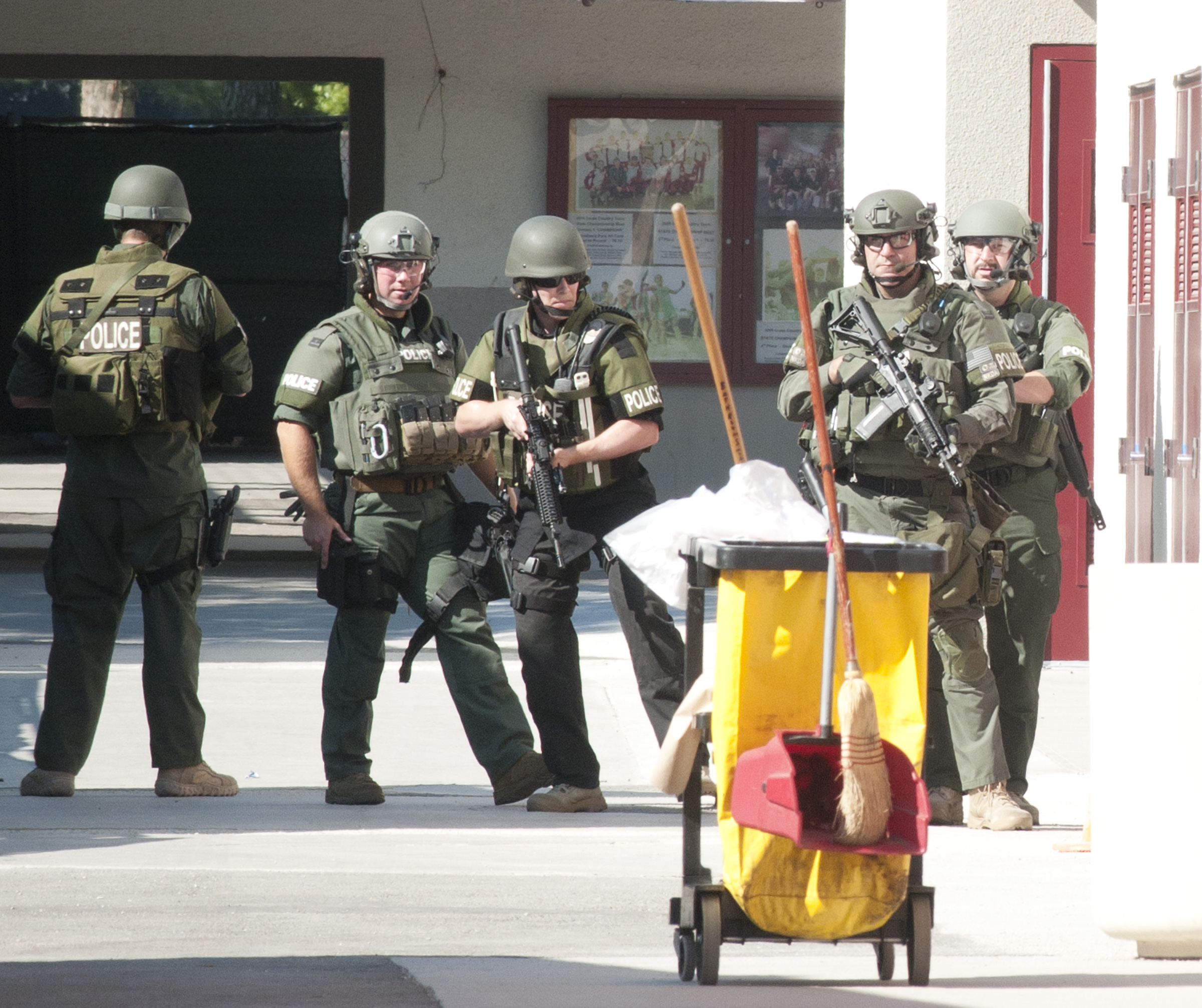
– Photo by Terry Miller / Beacon Media News
Thanks to a gang injunction law, which went into effect approximately a decade ago and the prominence of community policing, the streets of Monrovia are much safer and community pride in addition to spirit is, perhaps, at an all-time high. A large part of that enthusiasm is, indeed, thanks to transparency and the community policing policy that has garnered increased trust that feasibly, only small police departments like Monrovia PD can attain.
We asked Arcadia Police Chief Robert Guthrie similar questions about the law:
Q: How can we, as a local newspaper, help increase the respect for police agencies?
A: The Arcadia Police Department respects the right of a free press, and appreciates the impact news media has on our citizenry. We also appreciate the efforts of news media to report stories they see fit to print in a credible, accurate and factual manner. A breadth of coverage that includes stories of police agencies, and the very real people that make them up, help strengthen the relationship between police departments and the communities they serve.
Q: Has this bill significantly increased the number of requests for records?
A: SB 1421 has not significantly increased the number of records requests for the Arcadia Police Department.
Q: What kinds of records are NOT available for release?
A: This question is best answered by what records SB 1421 does allow for release. For those details, I refer you to the legislation itself which clearly articulates the peace officer personnel records that are subject to public inspection pursuant to the California Public Records Act.
Q: The Sacramento Sheriff’s Department was sued by two major newspapers claiming the department is refusing to follow the statute that requires the release of records on OIS or misconduct. Has Arcadia had any suits filed like this?
A: No.
Q: Peace officer personnel records are protected by law but with this new law, that doesn’t seem to be the case in many circumstances. What are your thoughts?
A: Arcadia Police Officers are sworn to support and defend the Constitution of the United States, the Constitution of the State of California, and enforce local and state laws. SB 1421 is law, and we follow it.
Q: Along with a bill that requires the release of officers’ body camera footage of deadly shootings or use of force incidents, SB 1421 has signaled a shift toward increased transparency. But hasn’t this always been true of APD?
A: The Arcadia Police Department is committed to being as transparent and forthcoming as possible under the law with regards to matters involving its police personnel. We respect both the laws in place that support our community’s right for transparency, as well as the laws in place that support the confidentiality of peace officer personnel records.
Q: Do you feel the general public trusts and respects the APD now more than ever or are the ever-growing list of restrictions put upon officers hampering their jobs?
A: Simply stated, I believe the Arcadia Police Department consists of some of the finest men and women that law enforcement has to offer. We are fortunate to work in such a supportive city, with residents that regularly show their trust and respect for the work we do in keeping Arcadia a safe and thriving community. Law enforcement is becoming a more complex and demanding job for our police officers. That shared, our officers are up to the challenge, and have my full support and confidence in meeting those challenges head-on as we engage the future together.
This concludes Chief Guthrie’s comments.
We know that our local departments in Monrovia, Arcadia, Pasadena and Sierra Madre have made a resolute effort in recent years for transparency and I believe the public is, generally, starting to see that openness and accept the crucial role law enforcement plays in our daily lives. It has been particularly noticeable with the fast release of body worn camera footage in some cities when major incidents garner significant publicity.
In recent times, and with the previous two police chiefs, Pasadena has seen a huge amount of anger directed at its Police Department for perceived non-transparency. Publicity over several officer involved shootings spawned a colossal outcry from Black Lives Matter and other grassroots organizations as well as the ACLU.
Perhaps one of the key factors in transparency is that cell phones seem to capture just about any police incident and in some cases immediately put online for social media users to rush to judgement. There are always two sides to a story which a cell phone video might not necessarily capture.
On Sept. 30, 2018, Governor Brown signed two legislative bills, Senate Bill 1421 and Assembly Bill 748, that will require major changes in how law enforcement agencies respond to requests for peace officer personnel records.

– Photo by Terry Miller/Beacon Media News
Our story’s focus is on how this affects our local law enforcement agencies and how it touches all of us.
“In general the law is impacting us by increasing the amount of records requests we are receiving. I don’t think staff will have a particular comment or opinion on the law outside of that,” Sierra Madre City Manager Gabe Engeland told Beacon Media Thursday.
According to the bill’s text:
“This bill (SB 1421 ) requires, notwithstanding any other law, certain peace officer or custodial officer personnel records and records relating to specified incidents, complaints, and investigations involving peace officers and custodial officers to be made available for public inspection pursuant to the California Public Records Act.
“The bill defines the scope of disclosable records. The bill also requires records disclosed pursuant to this provision to be redacted only to remove personal data or information, such as a home address, telephone number, or identities of family members, other than the names and work-related information of peace officers and custodial officers, to preserve the anonymity of complainants and witnesses, or to protect confidential medical, financial, or other information in which disclosure would cause an unwarranted invasion of personal privacy that clearly outweighs the strong public interest in records about misconduct by peace officers and custodial officers, or where there is a specific, particularized reason to believe that disclosure would pose a significant danger to the physical safety of the peace officer, custodial officer, or others. Additionally the bill authorizes redaction where, on the facts of the particular case, the public interest served by nondisclosure clearly outweighs the public interest served by disclosure. The bill allows the delay of disclosure, as specified, for records relating to an open investigation or court proceeding, subject to certain limitations.
“(a) Peace officers help to provide one of our state’s most fundamental government services. To empower peace officers to fulfill their mission, the people of California vest them with extraordinary authority — the powers to detain, search, arrest, and use deadly force. Our society depends on peace officers’ faithful exercise of that authority. Misuse of that authority can lead to grave constitutional violations, harms to liberty and the inherent sanctity of human life, as well as significant public unrest.
“(b) The public has a right to know all about serious police misconduct, as well as about officer-involved shootings and other serious uses of force. Concealing crucial public safety matters such as officer violations of civilians’ rights, or inquiries into deadly use of force incidents, undercuts the public’s faith in the legitimacy of law enforcement, makes it harder for tens of thousands of hardworking peace officers to do their jobs, and endangers public safety.”














































